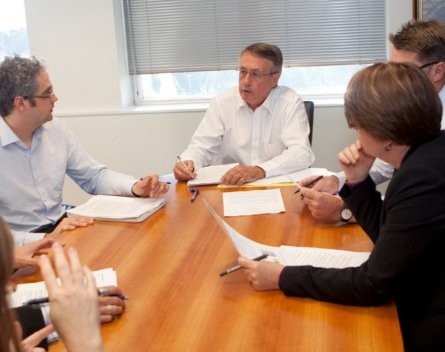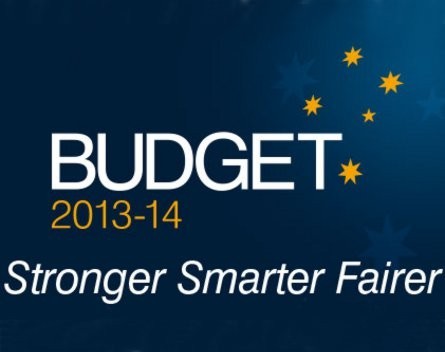2013 federal budget: Five things start-ups should watch out for – StartupSmart

The 2013 federal budget, set to be unveiled tonight, probably won’t be one that Treasurer Wayne Swan will want to be remembered by, given that it looks likely Labor will be removed from office in four months’ time.
Swan is contending with a revenue shortfall in the region of $17 billion, driven by some rather slap-dash government forecasting but also longer-term problems it created itself, such as a cravenly powder puff mining tax and a carbon price that provoked much hysteria but is, in fact, overly generous with its household compensation.
For start-ups, this could’ve been a progressive budget where Swan decided to unleash some of the vast savings hoarded from the mining boom in order to tackle softness in the economy with clever investment in the new and emerging industries that will bring new skills, jobs and wealth to Australia.
Instead, there is widespread fretting about Australia’s modest debt levels and how to patch up the budgetary shortfall.
Some of the bad news, such as the decision to defer the carbon price-driven tax cut and the reduction to the foreign aid budget, has already dribbled out. But what other things should entrepreneurs be on the lookout for tonight?
A new revenue-boosting levy/tax
Whether it’s defined as a levy or a tax, new businesses certainly won’t welcome any new financial imposition.
However, given that the government’s coffers aren’t as full as it expected, don’t be surprised if there is a new tax – Labor’s 30th since it came to power in 2007 – that will impact small businesses.
Business lobby groups have urged the government to find a “path back to surplus”, calling for a company tax cut to help drive growth and boost flagging corporate confidence. But this looks unlikely.
Gary Green of Bibby Financial Services, says: “Businesses aren’t investing because they are burdened by too much red tape, political and policy uncertainty. They are experiencing cashflow difficulties and they will have to fund increased superannuation contributions for employees from July 1.”
“Any further hit in this budget would force some small businesses to shelve employment plans, lay off workers or cut back on their capital spending.”
“It would hit confidence hard and stunt economic growth and a broader recovery, particularly in non-mining states. The small business sector is a huge private employer and crucial to the overall health of the economy.”
Innovation threats
The key government department for Australian start-ups is arguably the snappily-named Department of Industry, Innovation, Climate Change, Science, Research and Tertiary Education.
This strange Frankenstein of a department is responsible for much of the public spending on up-and-coming businesses. Any cuts or changes to its programs will have a detrimental impact on new ventures.
In particular, keep an eye out for any knock-on effects to the Innovation Investment Fund, which recently announced a new $200 million round, and Commercialisation Australia, which temporarily halted its grants to new businesses last year due to an odd panic attack by the government over spending.
For exporters, a boost to Austrade’s Export Market Development Grant scheme, which helps Australian businesses establish new markets, would be beneficial given the recent strength of the dollar, prior to its decline over the past few days.
Green fund goes red
One pot of cash that looks ripe for raiding is the $200 million Clean Technology Innovation Funding Program, which provides grants to green and clean tech start-ups of between $50,000 and $5 million, with the government funding up to 50% of the project cost.
Last week, Climate Change Minister Greg Combet announced a lowering of the fixed carbon price amount, sparking fears that the investment in green start-ups that flows from this tax will be cut.
With Australian start-ups innovating in areas such as solar, tidal and other green energy already lagging disturbingly behind their international rivals, the move towards a smart, green economy could be further stunted by tomorrow morning.
“In the clean tech space, the range of programs announced over the last few years has brought much needed investment into a sector, and it would be unfortunate to see it disappear,” says Andrew Stead, director of business development at ATP Innovations.
“Whatever the carbon price is at any point in time, the funding programs are more about creating new businesses and jobs in Australia and, most importantly, reducing carbon output for the benefit of the environment.”
Infrastructure or surplus?
While Swan is being pressed to impose spending austerity to help get the budget back into the black, there are also calls for him to help improve Australia’s creaking infrastructure.
State governments have made noises for more Commonwealth cash for various improvements, such as the Bruce Highway in Queensland and the Pacific Highway in NSW.
Australia’s debt is less than 1% of its GDP, with triple A credit ratings from all of the major agencies. The economy is forecast to grow by 3% this financial year, dropping back to 2.5% in 2013-14. Inflation is set to be 2.25% this year and 2.5% next year.
These figures suggest that Swan could borrow money on highly favourable terms to fund upgrades that would aid Australia’s long-term future. But the debt-fixated political climate simply wouldn’t allow him to do so without significant backlash.
The Coalition reply
Arguably, what Wayne Swan does is only of fleeting importance. With the polls pointing to a crushing Coalition election victory on September 14, the most pertinent comments tonight will be mouthed by shadow treasurer Joe Hockey.
Expect Hockey and his sidekick Andrew Robb to fully exploit the government’s fumbled maths and any painful cuts it has to make.
But what start-ups should most be interested in is any Coalition policy detail. How will it wind back the carbon and mining taxes without deep cuts to spending that will impact consumers? What will it do to help the next generation of Australian businesses?
Already, the Coalition has had to walk back its promise of a 1.5% company tax cut, while its generous paid parental leave scheme has been roundly attacked by lobby groups. Can Hockey and Robb come up with a positive policy that small firms will actually benefit from?

